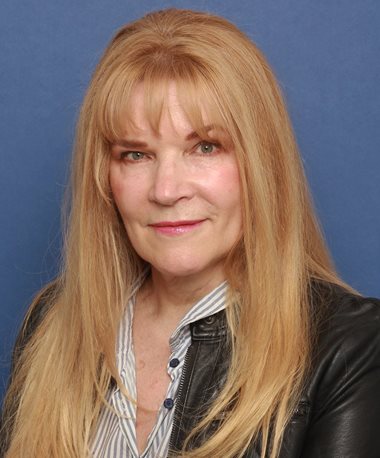Hotels are the driving force behind the accommodation sector's post-pandemic recovery.

Source: Supplied. Rosemary Anderson, the national chairperson of Fedhasa.
This has been revealed by Stats SA’s December 2022 tourist accommodation report, which found that accommodation income increased by 46.7% compared to the fourth quarter of 2021, and hotels were the biggest contributors.
Hotels contributed 63.3% to this figure, which translates into R3.5bn in monetary terms, while other accommodation contributed 33.4%, translating into R2.8bn.
The figures for December 2022 are equally positive.
The first festive season since the start of the pandemic without Covid-19 restrictions in place, the report shows a strong recovery of 43.5% compared to the year before.
Income was derived from a 19.9% increase in the number of stay unit nights sold and an increase of 19.7% in the average income per stay unit night sold. Here, the biggest contributor was once again hotels at 62.8%, while other accommodation contributed 27.8%.
In terms of hotel occupancy rates for December, Stats SA reported occupancy levels of 41.1%, however, the Federated Hospitality Association of South Africa's (Fedhasa) national chairperson, Rosemary Anderson, says their members reported significantly higher occupancy levels, of an average of 65%, with many hotels very close to pre-Covid levels and a number exceeding 2019 room occupancy rates.
Included in the December report, the latest food and beverage stats reveal that in the fourth quarter of 2022, total income increased by 13.4% compared to the fourth quarter of 2021. This translates into R18.5bn, with the main contributors being restaurants, coffee shops and catering services.
December 2022 saw an increase of 14.2% compared to the previous year, with the most significant annual growth rates being bar sales at 25.5% and food sales at 13.6%.
Key takeaways for tourism
Indications are that growth and recovery are continuing, although tourism has yet to recover to pre-Covid-19 levels. Several challenges are constraining growth, chief among them the electricity crisis, which is putting pressure on hospitality businesses of all sizes.
“Food and beverage is not showing growth at the level we had hoped. In addition to load shedding, other impediments include the higher cost of living and food inflation," says Anderson.
“And while we welcome the news that hotels are driving recovery and that occupancy is up, we believe this could hinge on their ability to invest in an alternative energy supply, such as generators and solar installations. Tourist confidence would also lean towards hotels for this reason.”
She points out that hotel revenues are, however, being depleted by the running costs of keeping the lights on, giving the example of a large Fedhasa member hotel in Johannesburg having spent R1m on diesel in December.
Between a rock and a hard place
At the same time, smaller accommodation providers do not have the capital to invest in such solutions. “They cannot survive load shedding long term. The situation is critical, and we urge government to expedite energy security interventions now that a state of disaster is in place.”
Anderson points out that reliable water supply is also becoming crucial. “One of our members on the South Coast spent R1.5m in December alone, bringing in bulk water to cover for the collapse of water provision from the local municipality. This is financially not sustainable and is putting the hospitality industry in the area at risk.”
The World Travel and Tourism Council has predicted that the sector will drive South Africa’s economic recovery over the next 10 years and grow at an average rate of 7.6%. The industry is also expected to create 800,000 jobs over the next decade. “However, this growth is threatened by the lack of basic services,” Anderson says. “We must also ensure that our destination is safe.
“If Government could create a conducive environment for tourism by providing reliable bulk services, removing industry red tape, creating an efficient e-visa system, and reducing crime, tourism could be the answer to unemployment and create more than 800,000 jobs – it could create millions of jobs. While we remain hopeful for 2023, we need to stay focused on these barriers to travel, hospitality and tourism, and continue motivating for change,” she concludes.



















































